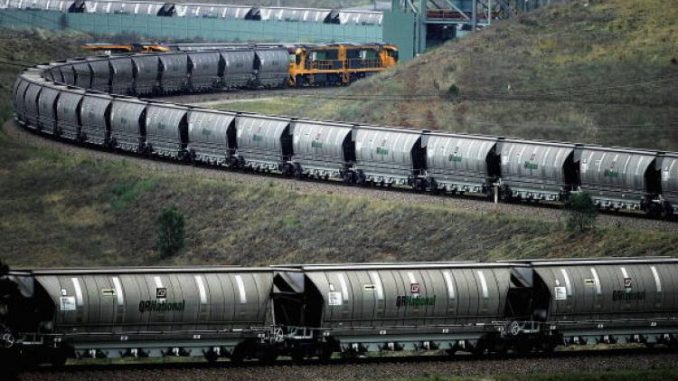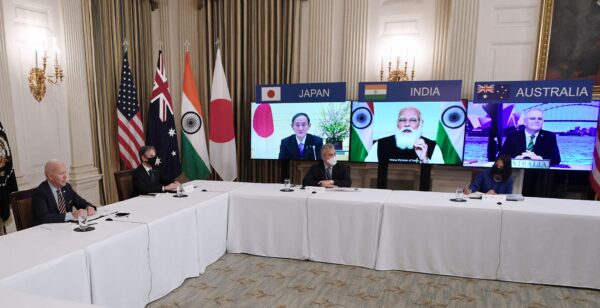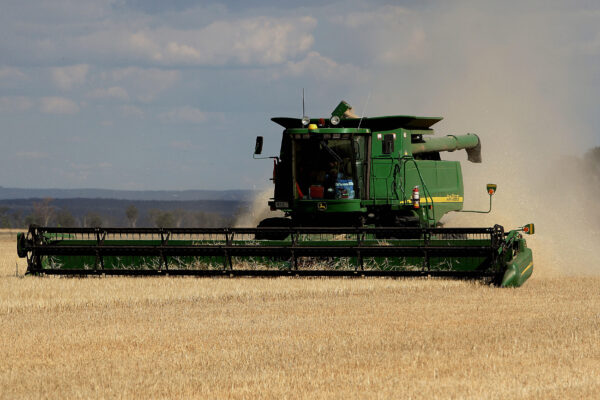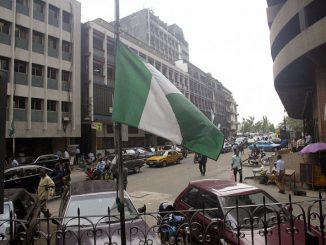
Commentary
Allies really shouldn’t throw each other under the bus when it comes to China. Just the opposite.
China banned Australian coal exports in October, and over the next five months, those exports dropped from over 3 million tons per month, to zero. American coal producers lifted some of those sales, with quantities sold increasing from about zero that month to 663,000 tons in March, according to China’s customs data.
China’s increased coal exports from the United States thus hit two birds with one stone. First, by punishing Australia, in part for rejecting Huawei (at America’s request, awkwardly), and second, by helping China meet its obligation to purchase another $52.4 billion of U.S. energy from 2020 to 2021, per former President Donald Trump’s Phase One trade deal of January 2020.
Trump put America first with his trade deal, but ignoring America’s allies as China’s punitive tariffs thrash each in turn like oxen on Beijing’s plow, making them suffer, and driving them in China’s preferred direction. Where America was first with its allies, it could now come in last.
On April 28, Japan was the latest country to approve Beijing’s Regional Comprehensive Economic Partnership (RCEP), which excludes the United States. All of the Association of Southeast Asian Nations, known as ASEAN (Philippines, Vietnam, Myanmar, Singapore, Brunei, Malaysia, Indonesia, Laos, Cambodia, and Thailand), plus South Korea, New Zealand, and Australia, are also in the process of joining RCEP. The agreement is another step towards Beijing’s dream of hegemony in Asia, which would push U.S. military bases and trade completely out of the region.

Canada also benefited from Australia’s loss. That cold nation to our north exported 2.2 million tons of barley to China from the 2020 to 2021 harvest. This more than doubled the 2019 and 2020 exports, according to the Canadian Grain Commission. Meanwhile, Australia lost about 15 percent in unmilled barley export revenues to China (A$90 million). Why? China’s deep-cutting 80.5 percent “anti-dumping” duties levied against the back of Australian barley in May.
You can be sure that Australian barley and coal producers are screaming bloody murder to their elected representatives in Canberra (the ones that listen, because they get paid to). They will be asked exactly what Beijing wants them to be asked. Australia must cave to the Chinese Communist Party (CCP)’s wish list. Invite Huawei into Australian information networks. Stop being friendly to Taiwan. Stop complaining about genocide against the Uyghurs. Stop encouraging the United States through joint naval operations in places like the South China Sea. In other words, stop being Australian.
There is a better alternative to the kowtowing of Australian sovereignty to Beijing in order to sell it the coal it will use to power its industry, build its military, and claim hegemony over Asians, Pacific-Islanders, Aussies, and Kiwis. Not to mention, pollute the world into catastrophic environmental decline.
Allies like the Unite States and Canada, instead of throwing Australia under China’s bus when it’s down and out, should support all their exporters, of whatever nationality, when they are sanctioned by Beijing. The governments of the three countries, as well as other big allied exporters to China, like Japan, South Korea, Germany, Brazil, Vietnam, and Malaysia, should form a government-backed exporters’ confederation that guarantees the purchase of exports when those exports suffer due to sanctions from Beijing. This amounts to official insurance for exporters against the CCP’s trade tantrums. It could be self-funding through minor international levies imposed on exports to China in good times. This would be an international sellers cooperative to pressure Beijing into being a reasonable international citizen, rather than an aspirant to hegemony, at no cost to taxpayers.
Next time China sanctions Australia’s barley producers, for example, the export federation would work to find alternative markets at the same or greater price as China would have paid. Failing which, the federation would guarantee to buy the barley outright, or make the farmers whole.

This would remove a vector of Beijing’s influence on the governments of our democracies. No more would these barley producers be put in the unenviable position of needing to sinicize Australian government policies in order to ensure their barley sales.
Free the barley!
Anders Corr has a BA/MA in political science from Yale University (2001) and a Ph.D. in government from Harvard University (2008). He is the principal at Corr Analytics Inc., publisher of the Journal of Political Risk, and has conducted extensive research in North America, Europe, and Asia. He authored “The Concentration of Power” (forthcoming 2021) and “No Trespassing,” and edited “Great Powers, Grand Strategies.”
Views expressed in this article are the opinions of the author and do not necessarily reflect the views of The Epoch Times.






Be the first to comment